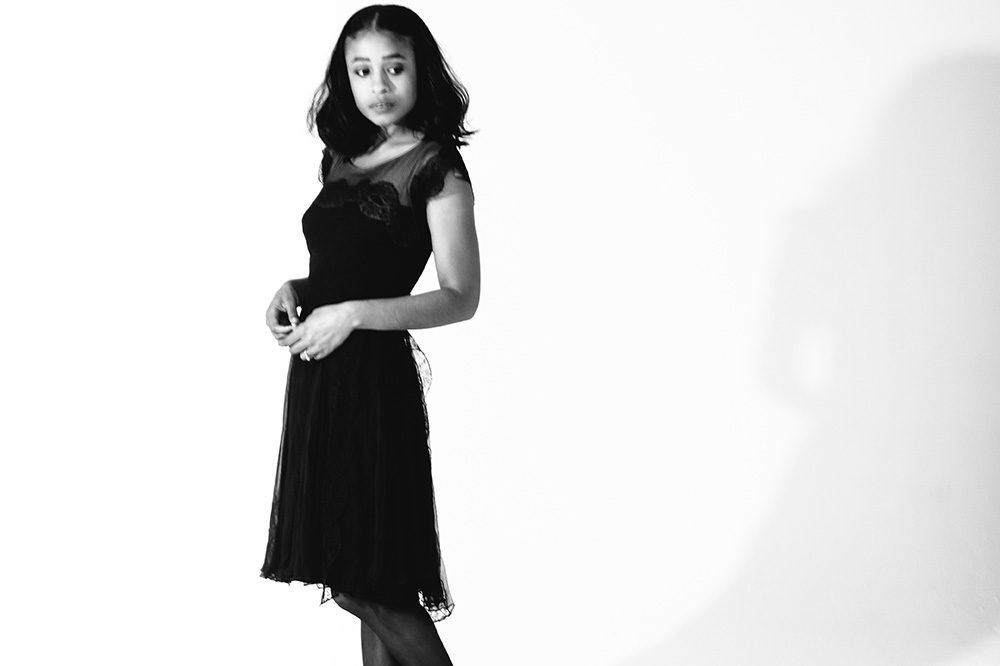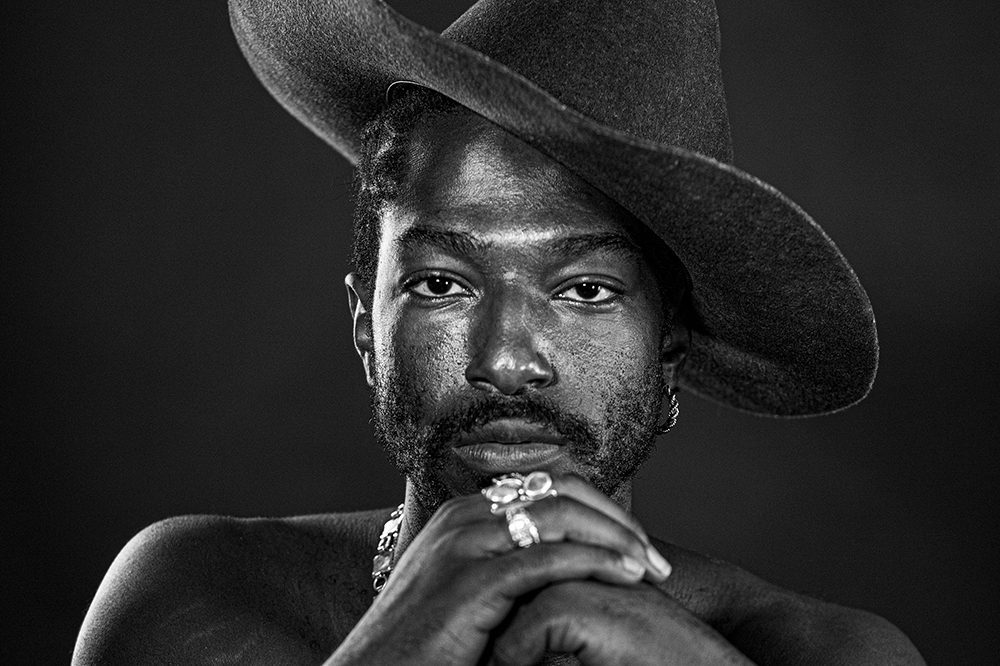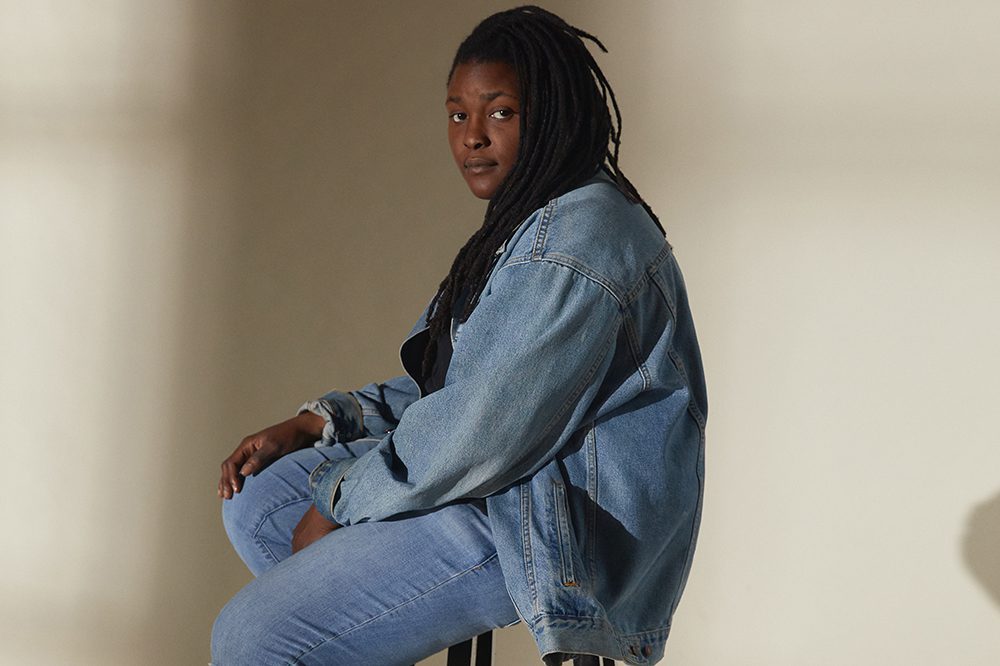

For Adia Victoria, creating A Southern Gothic was a demanding process physically, emotionally and spiritually. “I think that this was a record that walked with me through one of the most difficult periods of my life,” Victoria expresses to Audiofemme in a Zoom interview from the porch of her Nashville home. “It was a very physical process of writing this record.”
Though the exquisite new album captures Victoria’s deep Southern roots, she had to travel across the globe in order to tap into them. In January 2020 – just before the world shut down due to the COVID-19 pandemic – the South Carolina native jetted to Paris where she met with creative partners Jack Jones and Marcello Giuliani, equipped with another important travel companion: books. As a frequent traveler to the City of Light, Victoria often brings literature with her, this time immersing herself in the words of Southern writers, along with Alan Lomax’s famous recordings of field workers, absorbing the sounds of a pick ax hitting the ground to the breaths between members of a chain gang.
“Words hit different over there for me, and my relationship with speech and rhythm and words. I’m hearing spoken words differently there. You could walk for miles in the city and never run out of things to ponder. For me, that’s the perfect recipe to create art. Art just pours out of me there. I go to Paris in order to see more clearly. I think the distance gives you a little bit more of a boundary. It’s not so raw to write about over there. I get to tap into a different part of myself,” she observes.
“When I was writing the beginning portion of this record, I was far away from the South, but trying to root myself there,” she continues. “I needed to feel connected somehow to the dirt and the landscape of the South where so much of myself and stories I tell are created through that interaction of the land and the person. A lot of what guided me in the initial stages was wanting to pay reverence to the Black folk that came before me who created the blues while bent over crops and cotton.”
After arriving back in Nashville from her trip abroad, Victoria got to work with creative partner and instrumentalist, Mason Hickman. While crafting the album, Victoria was working as an Amazon warehouse employee, lyrics naturally coming to her as she walked the aisles fulfilling orders. The singer recalls a particularly grueling shift, feeling depleted by the eighth hour and experiencing intense anxiety with the pandemic raging and many unanswered questions lingering. “It was in the thick of hell and I was walking and I was like, ‘What am I doing here?’ I felt so lost,’” she remembers.
But this painful moment turned into a source of refuge as a song began to form in her mind that manifested into “Carolina Bound,” pouring out the sense of desperation she felt for her home state of South Carolina. “I long for my mother brother and sister too/To see and smell the ocean turn my pain into blues,” she sings over a melody that strikingly blends the bluegrass nature of the banjo with the pain of the blues. “I mean to leave and not be found/Like a river run underground/I am Carolina bound.”
“I felt this homesickness, this primal need to go back home,” Victoria conveys of the song’s origins. “It literally came out of my body writing, walking, and working. The song definitely helped me transcend the dread of the present, and I feel like that’s something that the blues has always been for Black people. It’s been a transcendent art form for us, like a cultural heirloom that we’ve passed down,” she says. “There’s been so much drudgery done to our bodies that sometimes the blues of the mind, the poetics of the blues, have been our best means of escape and transcendence from the bullshit.”
The singer-songwriter and poet brilliantly captures her roots and reverence for the history of her ancestors through her voice. Intentional about not wanting to make a record that was “strictly autobiographical,” Victoria takes into account the harmful traditions of the South from multiple angles across A Southern Gothic, asking as many rhetorical questions as she offers observations, stepping outside of her own perspective to see from the vantage point of many other compelling characters.
We meet a “Mean-Hearted Woman” who is coldly forced out of her home on Christmas morning by a husband who’s found another lover. Jason Isbell, Margo Price, and Kyshona lend supporting vocals on the standout “You Was Born to Die,” which finds Victoria flexing the dynamics of her voice, layered over a melody that’s as much a character in the story as the lyrics themselves. The sobering “The Whole World Knows” follows a struggling drug addict who feels like an outsider in her church-going community, while a young woman mourns the death of her sister in “My Oh My.” Victoria proves she has a fierce tongue and spirit to match on “Deep Water Blues,” undeterred in addressing white supremacy head on, proclaiming, “Now it’s been too many times I been put in a place/To have to wipe up a mess a white man made/Like my grandmama did and her mama did too/So I’ll be awful glad to get me clean of you/And let the water do what water do.”
“I wanted to almost have the record be a meditation on the way that perception is seen in the South. Who’s the narrator of one’s life? Is it you, or is it the way people perceive you? What does it cost a person who’s not able to live up to what it takes to belong in a group? What does belonging even mean? What are the ways that we’re asked to sacrifice ourselves in the name of Christianity and respectability and good manners?” she reflects. “I wanted some of the songs to be looking at this girl who can’t belong from an onlookers’ perspective and then some to let her speak and let us hear her prayers and her meditations. I don’t know which perception is accurate.”
Stepping outside of her own frame of mind didn’t come without its challenges. The singer cites “Far From Dixie” as the song she felt most vulnerable writing, a process that required time and patience. “I was in a troubled way and I wasn’t sure what I wanted to say,” she admits. “I’ve learned never to write down what you don’t mean. Even if it’s not about you, if it’s not true to you coming out of your hands, I’d rather drive people crazy for a year than commit to something that I knew was not the heart of what I needed to say.”
Always one to honor her word, Victoria reclaims the narrative of the phrase “Southern Gothic,” often defined in literature by flawed characters, darkness and a feeling of alienation. With this powerful body of work, Victoria owns her space as a prolific Southern storyteller like the ones who came before her. “Typically when people think of Southern Gothic, they’re thinking of a particular aesthetic of the South that is centered in whiteness and centered in white dread and white anxiety and white fear of ‘the other.’ But I wanted to reclaim that title to be used as a marker of a Southern Black girl’s experiences growing up doubly othered and skewered so far outside the dominant culture narrative that centered itself only by excluding you. I wanted to center the mythologies of a Black Southern girl. I wanted to center her experiences and place them shoulder to shoulder with other Southern writers who claim to speak for the South,” she explains. “It was my way of putting my work under that umbrella of Southern narrative and Southern storytelling. It’s my way of authorizing the experiences of girls that look like me, who grew up where I did.”
Much like the respite the album-making process provided her, Victoria hopes that A Southern Gothic compels others to look inward. “A Southern Gothic, it’s a story. It’s a record that’s very much rooted in my body, rooted in the South, rooted in the dirt. It’s a record that kept me rooted when I wanted to float off into a cloud of anxiety last year. It’s kept me rooted to a true part of myself that exists audaciously independent of all the madness and the chaos. It showed me that there’s a part of me where art comes from that’s mine and it exists purely for itself and it can save your life, that part of you,” she professes of the album’s personal impact. “I would hope that it challenges [listeners] to engage with the lessons that the dominant narrative has imparted upon us to really question the particularities of the way that you walk through the world, the way the world walks through you, and consider the weight that is taken on by society’s eye upon you. How does that alter you? I would challenge them to listen more closely to their inner lives.”
A Southern Gothic arrives on September 17. Victoria recently launched season two of her podcast, Call & Response. She’ll open for Jason Isbell at the Ryman Auditorium on October 24 and appears on his upcoming covers album, Georgia Blue, set for release on October 15.
Follow Adia Victoria on Instagram, Twitter and Facebook for ongoing updates.




